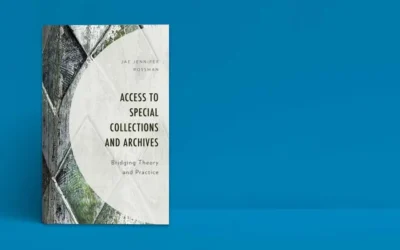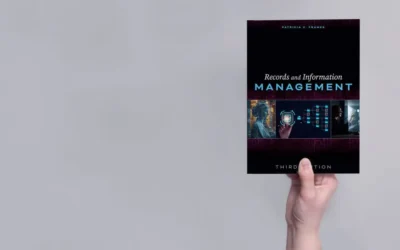The Pillars of Virtual Libraries
Lauren Hays
I recently participated in a panel discussion on virtual libraries hosted by Lucidea for the Special Libraries Association Annual Conference. It was an enjoyable event with a lot of ideas shared. We discussed many topics, but one that I keep reflecting on is the pillars that support a successful virtual library.
From my perspective, the main pillars are communication and organization.
Communication
Virtual librarians need to determine how to keep communication channels open between library staff, and between librarians and library stakeholders. To do this, expectations need to be established.
Library staff need to know what tools to use to contact each other, they need to know how they will be kept up-to-date, and they need to be in regular communication with colleagues.
If you are a manager, establish norms around virtual communication. Ideas include:
- Set-up a five-minute check-in call every morning
- Use chat for quick questions
- Schedule weekly or bi-weekly one-on-one meetings
- Model collaborative work
- Identify and use the correct tool for the communication need (e-mail, chat, video call, etc.)
To stay in contact with stakeholders in a virtual environment, librarians must determine the best ways to market their services, and to stay up-to-date on user needs.
In a virtual environment, organic relationships may not happen as easily. Therefore, librarians must be intentional about building relationships. To do this:
- Participate in online discussions
- Reach out to individuals in your organization
- Ask questions and seek advice
- Offer help when you can
- Be authentic
Organization
In a previous post, I shared my top 10 tools for organizing virtual work. I won’t repost those suggestions here. However, I do want to underscore the importance of setting up a strong organization system for everything from meeting notes, project assignments, and training schedules.
When I first started working virtually, I quickly realized I had a lot fewer meeting notes. This was because in face-to-face meetings I was able to take notes on my laptop or tablet. When I was at a virtual meeting I needed to have multiple screens open in order to participate and take notes. This is something I had to figure out, because not having good meeting notes meant I spent too much time asking follow-up questions. Starting with a plan to stay organized would have saved me time.
Conclusion
While the two pillars I identified vary slightly from the language used in a white paper Lucidea published on this topic, there is a great deal of alignment. Relationships and the right technology are necessary for communication and organization.
I encourage you to read Lucidea’s white paper titled The Virtual Special Library: The Next Normal?
Lauren Hays
Lauren Hays, PhD, is an Assistant Professor of Instructional Technology at the University of Central Missouri. Please read her other posts about skills for special librarians. And take a look at Lucidea’s powerful integrated library systems, SydneyEnterprise, and GeniePlus, used daily by innovative special librarians in libraries of all sizes and budgets.
Similar Posts
Texas Archive of the Moving Image: Interview with the Digital Archivist
I recently interviewed Grace Muñoz about her work at the Texas Archive of the Moving Image. Her work on improving the discoverability of the multimedia collection is fascinating.
Interview with Author and Librarian Dr. Jae Rossman on Special Collections and Archives
Dr. Jae Rossman wrote Access to Special Collections and Archives, available now from Rowman and Littlefield. The book is an excellent resource for special librarians who work with special collections and archival materials.
Interview with the Author: Dr. Patricia Franks on Records and Information Management
Dr. Patricia Franks is the author of Records and Information Management, now with an upcoming third edition to be published by ALA Neal-Shuman in the spring of 2025. My interview with her follows.
Are There Drawbacks to Using GenAI for Research?
Researchers must take responsibility for understanding how GenAI works and closely review literature search results before relying on them. Let’s take a look at three major drawbacks for researchers and special librarians to consider when leveraging or recommending GenAI platforms.




Leave a Comment
Comments are reviewed and must adhere to our comments policy.
0 Comments